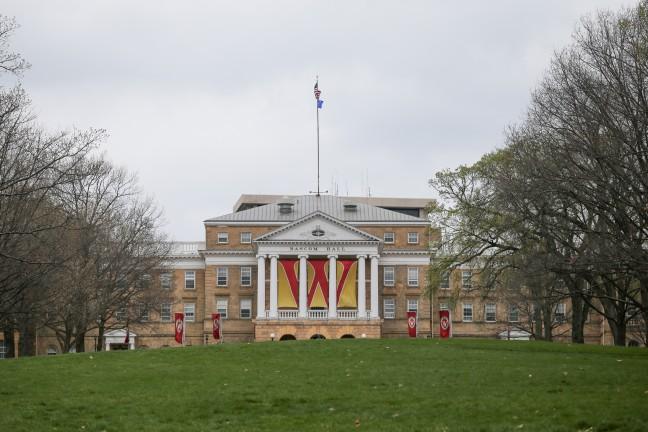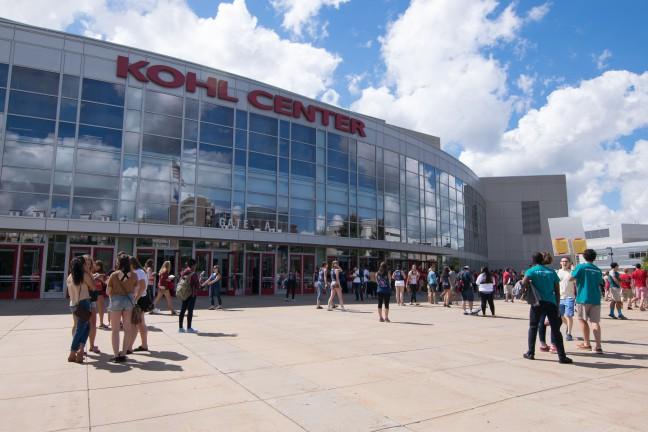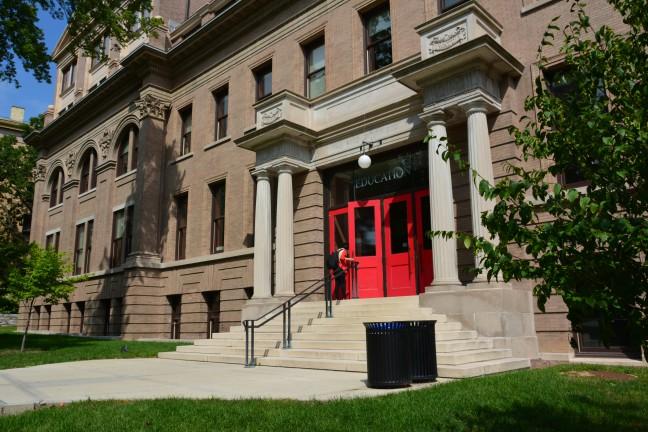A survey observing college and university leadership positions has found there is less job security for college leaders now than compared to a few years ago, bringing leadership at University of Wisconsin into focus.
The survey conducted by the American Council on Education followed more than 1,600 college and university leaders, observing their term lengths and backgrounds.
According to the ACE survey, the average chancellor or president keeps their job for seven years – a year and a half less than recorded in the 2006 poll.
The survey also followed the backgrounds of the new hires, finding that one in five college presidents come from occupations outside of academia, compared to the 13 percent polled in 2006. According to the survey, fewer number of provosts were interested in the position than in previous surveys.
Although the survey implies less job security for a president or chancellor position, former UW Chancellor John Wiley said he is skeptical of the lines drawn from the poll results.
“The turnover rate is highly variable to discern a trend,” Wiley said. “I am a little bit skeptical about the trends.”
According to Wiley, the trend indicated by the survey has not been generally present at UW.
Anecdotally, Wiley said when he was a UW student in the 1960’s, there was an even higher chancellor turnover rate than there has been lately.
“We had five chancellors in four years, and the reason for that, we assumed, was the campus itself,” Wiley said. “It was the Vietnam war.”
In addition, Wiley said previous UW Chancellor Biddy Martin’s resignation was for personal reasons and cannot be said to be related to the ACE’s findings.
UW Provost Paul Deluca agreed with Wiley, saying he could not see any evidence to the study’s effect at UW.
Regarding chancellor or president positions, both Wiley and Deluca said they could see the increased amount of stress tied to them, especially with budget cuts across the nation and in Wisconsin specifically.
“Any kind of leadership position there is is more challenging today,” Deluca said. “Certainly with public universities a social contract has been breached. Public universities were created to educate the citizens of the state. Before, the state heavily supported that process. Now, the state’s support of higher education has gone down; the contract has been breached.”
Wiley also attributed the stresses of the position to the role of the state in public education. As funding from the state has gone down, the university has been forced to raise tuition at a much faster rate than desired, putting the administration at odds with students, Wiley said.
However, despite these stresses, Deluca said he does not see any evidence confirming that members of academia have been disillusioned with the position, another idea presented by the survey.
Wiley also explained that the non-academia affiliated hires can be attributed to current shifts towards privatization.
“The trend today, the best way to solve all of our problems, is to privatize,” Wiley said. “That’s just nonsense. The skill sets needed are different. You cannot substitute the McDonalds CEO with the chancellor of Harvard, you just cannot – the skill sets are completely different.”
Interim Chancellor David Ward took over Martin’s position last year when she stepped down after a three-year term as chancellor at UW to become the president of Amherst College. The process for finding the next UW chancellor for the 2013 academic year is set to begin this fall.



















